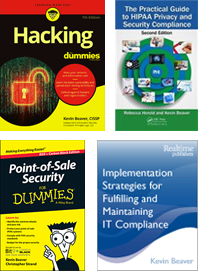-

How to network to boost your IT career
03 Jun 2021If you asked me what the one critical element is for maintaining a successful career in IT, I’d say networking. No, I’m not talking about the Ethernet, layer 3 switch, and VLAN type of networking. Rather, I’m referring to staying in touch with existing colleagues and attending networking events (presentations, seminars, conferences, etc.) with the intent of meeting new people who can, ultimately, help you accomplish your career goals. The top people in IT – and any field – are those who are continually networking to move ahead.
In the past few months, I have seen so many friends and colleagues struggle to find work and build business relationships. They claim no one’s hiring or they just can’t meet new people who may be able to help them out. Is this a sign of the economic times or a weakness on their part? It’s arguably both. In situations where people struggle to find work, there’s always one thing in common: they’re not making themselves known. You see, “who you know” is one thing but that’ll only get you so far. The better way of looking at it is “who knows you”. The only realistic way to go about increasing the who knows you component is by networking and building relationships with the right people over time. These are the very people who will be able to help you find a job or help you get new business to make your networking efforts worthwhile.
The foremost tenet of networking is to get over the belief that it’s all about you. Meeting and greeting people at networking events is not about how much you can impress them with your credentials but rather how much you can help them accomplish their goals. Greek philosopher, Epictetus, once said we have two ears and one mouth so that we can listen twice as much as we speak. If we’re going to build trust and create long-lasting relationships, we have to do just that: listen more than we talk. When you meet people, start out by asking them about themselves: where they’re from, how long they’ve been in the area and other personal questions. Then ask them what they do, how they got started in their line of work, and what they like the most about what they do. You can even compliment them on their business cards and tell them you’ve heard their field/industry is a great one to be in. People love to talk about their backgrounds and stories. By being a patient and attentive listener (without interrupting and looking around at others while they’re talking to you) you’ll lift their self-esteem and immediately start building the relationship.
Ask the people you meet how you would know if you came across a prospective client for them or a good person for them to network with. This is the true value of networking – asking the people you meet how you can help them. If you’re able to do this, you’ll undoubtedly get something back in return, perhaps immediately, in a week, or maybe a few years. Just know that people remember those who take care of them and will almost always want to return the favor. It might just take some time so you have to be patient.
Another important aspect of career networking is to have your elevator pitch down to a science. I can’t tell you how many people don’t know what it is they do for a living. When asked the question “What type of work do you do?” there are often a lot of “uhs”, “ahhs”, and so on. Or, the person rambles about this, that, and the other and several minutes later you still don’t know what they do. Sound familiar? Don’t be one of those people!
You need to have a finely tuned pitch that you can roll off your tongue without hesitation. For example, when people ask me what I do, I reply “I’m an independent computer security consultant and help businesses find the weaknesses in their networks, web applications, and IT operations so they can plug the holes before the bad guys exploit them.” It’s to the point and explains exactly what I do in about 10 seconds. If they continue to ask questions, and if I see it may be of benefit, I’ll discuss my consulting work in more detail and mention the speaking, writing, and virtual CISO work I do. But as soon as I get the information about me out into the open, I default back to my point above to listen and learn more about the other person. It just seems to work better when I shut up and turn it back over the person to whom I’m speaking.
One aspect of networking we often take for granted is the fact that, like any marketing program, you must do it over and over and over again. Networking is not a once-a-year deal. It’s more like a once every week or two kind of thing. Never forget that it’s about who knows you. You must get out and interact and actively seek to develop relationships so that people can get to know you over time. I know that meeting in person has been a bit tricky with the Covid government lockdowns we’ve been subjected to over the past year. Networking events are starting back up – at least where I’m at in Georgia. For already established relationships, I find that catching up with a colleague over breakfast or lunch is a great way to foster the relationship – especially now that states across the US are fully opening back up.
Also, don’t assume that you’ve done all there is to be done by just meeting people, exchanging business cards, and never following up. As soon as you can after each event, send a follow-up email or letter to tell the person it was a pleasure meeting them. If you didn’t get a chance to ask them about who you could possibly introduce them to, this would be a good time to do so. It’d also be a good time to remind them what you do, tell them the type of work or relationships you’re looking for, and tell them you’d appreciate any referrals.
Finally, I’d like to say a few words about connecting and interacting with people via social media such as LinkedIn, Twitter, and Facebook. In short, they’re complementary tools that you need to leverage but they’re not enough. Absolutely nothing – even Zoom meetings that we’ve all grown weary of – helps build trust and create relationships more than meeting face to face. Sadly in-person meetings seem to be a dying trend but if you do make the effort to go to live events or invite someone to meet at a restaurant while others sit at their computers, you’ll continue to stand out in this field. That’s the key to success.
For related thoughts, check out my dedicated IT and security careers page.



